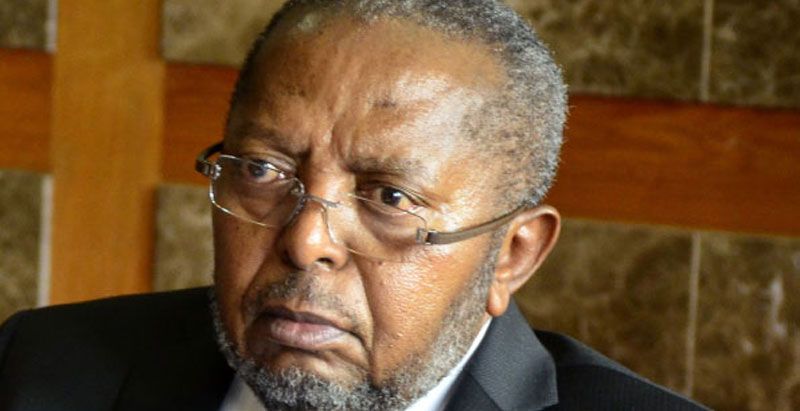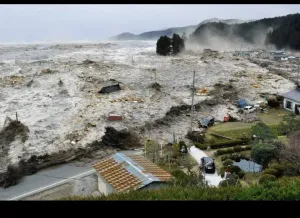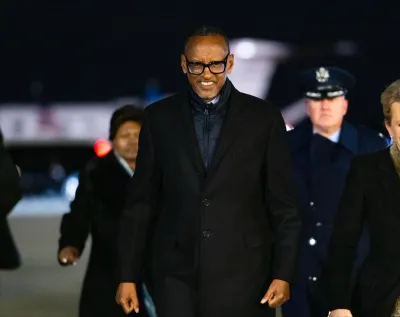
Use bailout request as an opportunity to redirect private sector investment toward the tradable sector — in activities that produce products for export or those that substitute imports
In the course of this year, I have written in these very pages, all that is wrong with Uganda’s economy. I have asked a few questions to elicit policy and action. I asked: Why do our leaders insist on doing what they know has not worked before and will never work? Why do they insist on repeating what has failed? (seeWhy are we stuck with IMF/WB policies? and Why the economy is dying
Mr. President, I have also asked why it was difficult for your government and its economic advisers to see that there was urgent need to shift the debate on Uganda’s economy from what the reforms have achieved or where they have failed, to what needs to be done to move the economy from stabilisation to growth and development.
Most importantly, in April last year I asked this question: Is Uganda’s economy moving in the right direction? If the economy was doing well as government people keep telling Ugandans, why do banks that were on average charging borrowers 14% in 1994 when Uganda was more vulnerable to inflation and with poorer infrastructure, increased their charges to 25% and above, and reduced the deposit rate offered to savers to as low as 2%?
I thus asked: “Did Uganda liberalise too far, too fast? I wondered why the NRM government had failed to distinguish between pro-market reforms and pro-business reforms — blindly concentrating on the former (removing impediments to markets to attract new entrants and encourage consumers) and failed to build the capacity of the indigenous businesses and producers.
Mr. President, I continuously told you that when the guardians of globalisation — IMF, World Bank, WTO and the U.S. Treasury — asked you to open up Uganda’s markets, you plucked out the door. In the process you turned Uganda into a guinea pig where the world’s products are tested! When you were asked to privatise and reduce government inefficiencies in the economy, your government nearly sold itself! You never put anything in context.
Economy without rules
When you were asked to liberalise, you took it literally to mean that government had no role whatsoever. You left the economy to operate without rules. You let ‘cheaters’ to take advantage of the vulnerable and the poor to extort money by confining them in tight spots; a contemporary of Julius Caesar’s ploy who made a fortune in the former Roman Empire with a private fire company that would negotiate the price for extinguishing the fire as it was raging.
I have written urging your government to step up regulation of banks to stop them from predatory lending. Instead, your trusted economists at Bank of Uganda and Finance maintained the rhetoric, “Ours is a free market economy; we have nothing to do.”
At the university, I often tell my students in our first lecture: “Dear students, in the course of this semester, it is all up to you to choose to do what scholarship demands of you (attending the lectures, visiting the library, answering the assignments, etc.), or to dodge doing that. However, one moment you will not dodge is when your friend sends you an SMS or Watsapp with three simple words: ‘Results Are Out’”
Mr. President, after years of dodging our free advice; results are out. Most of the businesses, some of which are very critical for Uganda’s economy, are at the brink of bankruptcy. Nearly all the movers and shakers of Uganda’s economy are distressed. They are choking on bank debts that have forced them to file for government bailout.
Many Ugandans, understandably, are angry with the bailout proposal. They are asking the same questions which Americans (in whose image we want to build our economy) asked their authorities in 2008: Why should government use taxpayers’ money to bailout reckless businessmen who squandered their fortune on their extravagant lifestyles?
Self-inflicted crisis
A friend of mine posted on Twitter what may pass for a scholarly thesis: “The privatisation of profit and socialisation of loss. Must we all pay for business failure when we didn’t all share in the profits made?”
What is different in our case, unlike the Americans, is that although the economy seems to be struggling and has been struggling to recover from the 2011/12 recession — with policymakers having to deal with nearly everything (high bank lending rates, unemployment, inflation, currency depreciation, drop in intra-regional trade etc.) — we have not yet established whether the crisis has been caused by business failure.
What is clear, though, is that we are in the middle of a crisis which in my view was self-inflicted by a myriad of economic and political poor decision making. These eventually have been worsened by several external and internal shocks (the war in South Sudan, the slowdown in the global economy, our own political stalemate, corruption etc.).
All economists know that failure of large companies in an economy may ignite a cascade of economic damage from which recovery would be nearly impossible. Therefore, bailouts may sometimes be necessary to prevent an even bigger crisis than the one at hand.
However, this is only true when the bailouts go for large companies that have a big influence (multiplier effect) on the economy, such that if a million shillings is spent on them, it is capable of creating more than say Shs.10 million, hundreds of jobs, and a significant amount of tax revenue.
Moral hazard problem
For example, the Obama government gave General Motors and Chrysler $80 billion (3 times the GDP of Uganda) in 2008. Although the American taxpayers have lost some $9 billion which the companies have not paid back, the automotive industry was rescued from collapse.
It saved 2.6 million jobs, avoided the loss of $105 billion in lost taxes and social service expenses, such as food stamps, unemployment benefits and medical care.
However, the real cost of bailouts is that they demonstrate the willingness of government to save reckless companies. In doing so, they create what economists call moral hazard problem — these companies and the banks involved are given an incentive to be even more reckless in the future, after all they are shielded from the consequences of their poor decision making or mistakes.
That’s why some people often argue that irresponsible companies, such as some of our own distressed companies, should be allowed to fail, such that the more stable and efficient companies absorb their businesses, keeping the economy afloat and leading to a stronger recovery.
But what about companies that could be paying for government’s mistakes? As I have elaborated above, it is government that over the years has failed to regulate and monitor the banks that have been engaging, and continue to engage, in predatory lending (lending to these businesses in such a way that it is impossible for them to repay the loans, with the intention of seizing their usually more valuable collateral).
Thus whoever is in charge of the bailout program should be careful such that: (1) they do not shift the consequences of bad behaviour from managers and owners of the businesses and the banks in question to innocent taxpayers, but at the same time (2) they do not allow important businesses to go under, where failure of such businesses might create economy-wide negative impacts.
Imaginary ‘tycoons’
Secondly, we should bailout only the “too-big-to-fail” companies, and not importers of Chinese hair and nails, or our imaginary “tycoons” who earn from speculation and investing in non-tradables — shopping malls, apartments, land etc.
Actually, government should use this as an opportunity to redirect private sector investment toward the tradable sector — in activities that produce products for export or those that substitute imports e.g. manufacturers, agro-processors, exporters, investors in tourism (such as large hotels).
On the flipside, Ugandans should know that in a crisis, economic policy makers have to take actions that they would not ordinarily take.
When the economy is caught in a downward spiral, like the one Uganda’s economy has endured for the last 5 years, taking actions to break the cycle and rescue and restructure systemic firms, in manufacturing or in other sectors deemed important, can have major benefits for the wider economy for the benefit of nearly everybody.
Our policymakers should be judicious in taking such actions to avoid future moral-hazard problems and to allow the economy’s natural process of creative destruction to work, which in the long run will raise productivity and living standards. We need to balance economic strength with social costs.
In a crisis, we should not afford to be sentimental or to hesitate. All we need are facts as quickly as we can and we get different people with different views in the same room to think it through. Most importantly, the decision to bailout or not should be made on the basis of what will do the most good for the country in the long run and not based on emotions or political expediency.
I have already heard that government has retracted from its earlier position. This also might turn out to be a mistake. Let the experts do all the due diligence to ensure that they pick out the bad apples (the so-called tycoons who thrive on speculation and those who burnt their fortune on reckless spending) and remain with the serious businesses.
Mr. President, above all, this should be a lesson to your government. Kindly tell your economists at Bank of Uganda and Finance to become less doctrinaire. They don’t have a monopoly on wisdom. They should stop the habit of letting the best be the enemy of the good.















Ramathan Ggoobi
Ramathan Ggoobi is Policy Analyst, and Researcher. He lecturers economics at Makerere University Business School (MUBS) and has co-authored several studies on Uganda's economy. For the past ten years, he has published a weekly column 'Are You Listening Mr. President' in The Sunrise Newspaper, Uganda's Leading Weekly
Leave a Comment
Your email address will not be published.